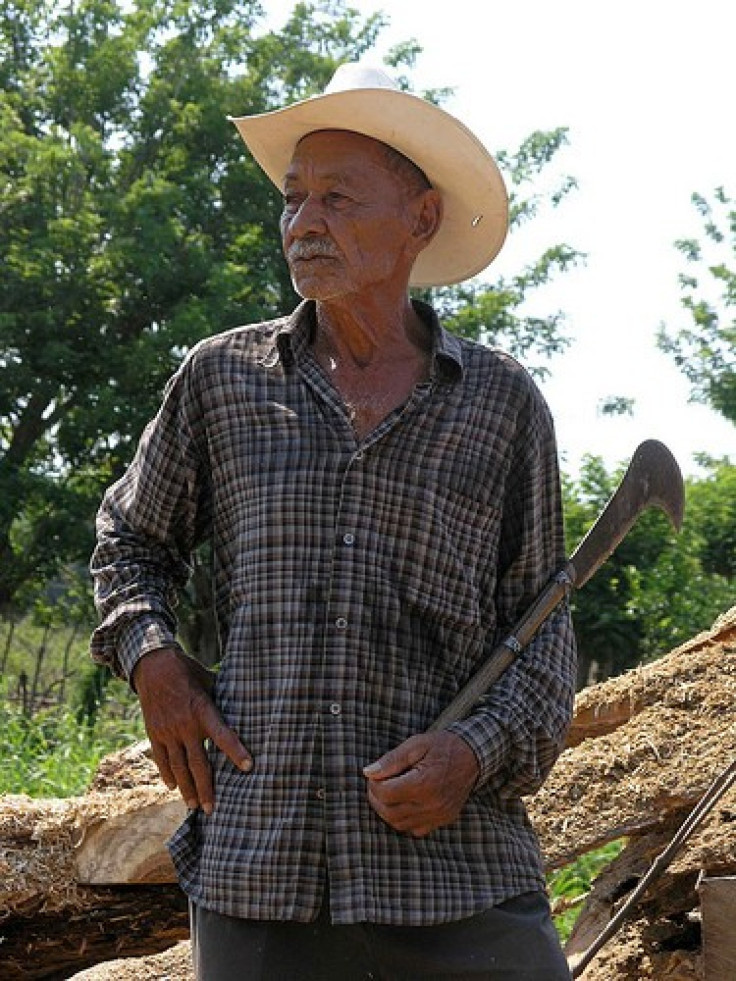Honduras Bans Guns In Colon Region, But Paramilitaries Will Be Exempt

Honduras, one of the most violent nations on earth, has imposed a ban on guns in the northern coastal Colon region, a rich farming area afflicted by drug trafficking and conflicts over land.
The measure passed by the Honduran Congress prohibits civilians from possessing weapons in public, cancels existing gun permits and bans the transportation of weapons in vehicles -- however police, soldiers and private guards will still be allowed to arm themselves.
"The bloodshed that continues taking place [in Colon] must stop and the disarmament of the local population is needed," said Honduran security minister Pompeyo Bonilla.
The law may be extended to other parts of Honduras as well, if the government deems it necessary.
Honduras, which has the world’s highest homicide rate already -- estimated at 86.5 murders per 100,000 inhabitants according to the United Nations -- has witnessed a particularly gruesome spike in carnage in Colon, from two different fronts.
With the Caribbean ocean at its doorstep, Colon makes for an ideal drug shipment hub for markets in North America.
The area is also beset by violence between peasants and landowners in the fertile Bajo Aguan valley where palm oil plantations proliferate.
Over the past few years, scores of peasants and farmworkers have been killed in Bajo Aguan for “squatting” on land they believe rightfully belongs to them. The government of President Porfirio Lobo has dispatched about 1,000 soldiers into the area to quell the violence, without much success.
Aaron Schneider, a professor of political science at Tulane University in New Orleans, commented that given the tidal-wave of killings in Honduras, a ban on guns is a welcome development.
However, he noted that in the Colon region, the major problem is violence sponsored and supported by the state, not necessarily weapons held by civilians.
“In Colon, state and paramilitary forces are supporting the efforts of elite landowners to expel peasants from lands occupied as a result of efforts at land reform,” he said.
“A gun ban applied to this [region] alone will address none of the murders concentrated in the urban centers of San Pedro Sula and Tegucigalpa and will likely not be applied to the paramilitary groups who have been murdering peasant activists.”
Indeed, the problem of guns and violence has swept across the whole nation of Honduras, enabled by drug trafficking, extreme poverty among the majority of the population and the proliferation of weapons.
Schneider suggests that a better way to stem the violence in Honduras would be to apply the gun ban to the entire country, “especially in more urban departments where illicit gangs are committing murders, and to also address the police and military forces known for human rights abuses and association with paramilitary forces.”
The U.N. estimates that there exist at least 800,000 guns in Honduras -- one for every 10 people -- a legacy of both prior civil wars and lax gun laws.
The National Commissioner for Human Rights reported that only about 258,000 of those weapons are registered, meaning the majority are illegal and likely were bought in Central America's booming black market.
Schneider also noted that gun bans are uncommon in Latin America.
“Several years ago, a referendum to ban guns failed in Brazil, [although] a limit on the sale of bullets passed successfully in Venezuela,” he said.
© Copyright IBTimes 2024. All rights reserved.











